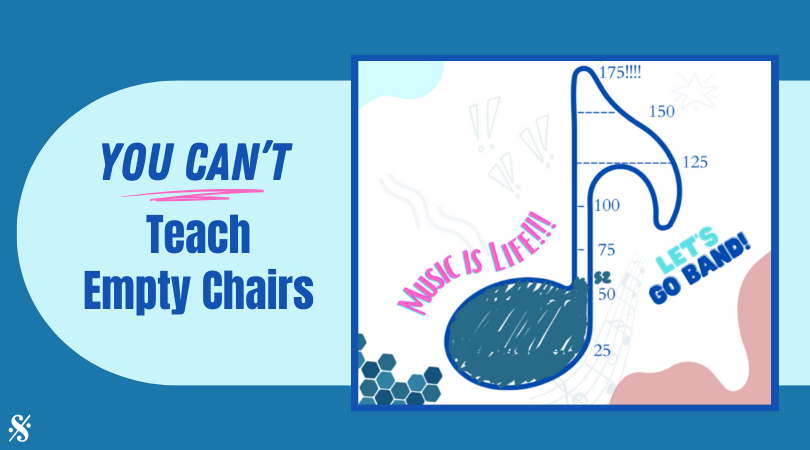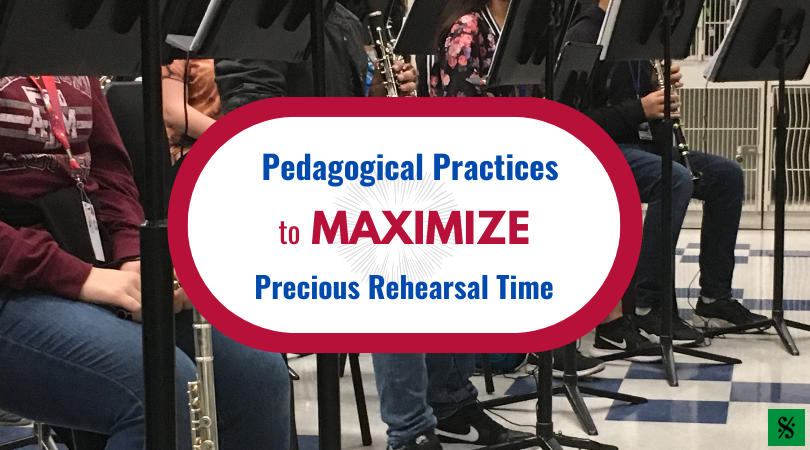One of the many hats that band directors wear is as a liaison between your band families and local music retailers. Rentals, repairs, and supplies can be overwhelming to first-time renters. In many such situations, parents will view you as an authority and seek out your advice. You can improve student outcomes by maintaining positive relationships with retailers, making sure your students start out with the best set-up and limiting downtime during repairs. For beginning band programs, especially when instruments are being rented on a large scale in a small time frame, cooperation from retail partners can make or break the start of your year. Knowing your boundaries and setting clear expectations with your local music stores can make everyone’s job run more smoothly, and lead your students to better success in the long run.

Restrictions and Cautions
At the outset, make sure you are familiar with your school’s policies regarding dealing with commercial retailers. It is important to understand what you can and cannot say to band families in order to retain your neutrality. In public school situations, in particular, there are safeguards in place to protect both school employees and local businesses from unethical practices. For public school-based transactions, retailers often need to go through a bidding process to provide their best prices. When providing documentation, be sure to provide contracts and fliers from ALL local stores. When parents ask for advice, couch any comments in a disclaimer that you are not able to recommend one business over another. This will help you maintain a positive relationship with multiple competing businesses, all of which you will inevitably work with at some point. You should certainly encourage families to consult with their friends and neighbors, read the fine print, and do their own research before renting or buying. Opinions aside, it is reasonable to tell parents what services individual shops offer, e.g. both stores do excellent repairs, but one store does them on-site while another sends instruments off-site and provides a loaner. Lastly, you should avoid acting as a middle-man for any financial transactions with outside entities. Insist with your retailers that they accept all loan contracts directly, and kindly explain that you are uncomfortable handling any money.
Communication
Once your students are established with a particular rental company, it is important to keep open lines of communication. You should acquaint yourself with the store representatives you’ll be dealing with directly; larger businesses will have dedicated couriers, while with a smaller local business you may work directly with the store owner. Make sure you have their contact information handy. Two situations that require the most communication with the retailers are: establishing new students’ rentals/acceptable supplies and arranging for timely repairs.
A responsible retailer will contact you to find out your specific preferences for rentals, including but not limited to: instrument brands, preferred method book, reed strength, German versus French bow in orchestra, etc. In the event that they don’t reach out, it is up to you to speak up and make your preferences known. It is very important that the provided set-up is comparable between stores so that they stay competitive and provide your students with the absolute best. Don’t be afraid to hold multiple stores to the same standard. Consider what is within reason for an instrument rental; remember, it can never hurt to ask. For example, as a clarinetist, I prefer my clarinet and saxophone students to start out with a thin rubber mouthpiece patch. Since I broached this topic with my local music stores, all of my rentals come with that patch included, saving my program about $50 each year (not to mention reducing wear on the mouthpieces over time). A small expense for the music stores is a large showing of goodwill and savings for the school.
Local music stores are invaluable when it comes to keeping your students’ instruments in working order, and reducing downtime for students while repairs are being done. One time-consuming (but worthwhile) measure I take at the beginning of each year is to input students’ rental data into my master spreadsheet. With the click of a mouse, I can quickly access relevant information, including which student uses which rental company, as well as the brand and serial number. The next step is to contact the appropriate people regarding the repair. This is easily done by e-mailing the parent/guardian and store representative in the same message. That way, if further communication is needed regarding instrument pick-up, additional charges, or repair timeline, all of the concerned parties (including you!) are in the loop. Encourage parents to read their contract closely regarding rental insurance and repair costs, and to take advantage of summer cleaning and tune-ups.
If you are lucky enough to have store representatives that travel to your building(s) regularly, it is also important to tell them your expectations regarding when it is appropriate for them to visit. You may choose to have them handle all business through your main office, or you might prefer a face-to-face meeting each week. If you are letting the front office or security desk deal with exchanges, make sure you clearly tag everything (in addition to communicating via e-mail or phone why the instrument is going in). If you plan to meet with the rep, they should know when your rehearsals are, as well as your lunch, and come at another time of the day—preferably during your prep (between scheduled classes also works if the exchange will be brief). Again, being in touch ahead of time regarding repairs, exchanges, and supply needs can save everyone time. On a particularly slow week when an e-mail check-in will suffice, they may not even need to stop by at all.
What Else Can They Offer?
Retailers often get free samples from larger suppliers which they can pass along to you. Freebies can range from reeds to tote bags. Music stores may waive the cost of simple supplies like an extra few bottles of valve oil, or a stack of blank name tags. They should be able to provide a loaner instrument in place of a student rental or school-owned instrument that goes in for repair. One particularly awesome gesture of goodwill a local store offered was an open-door instrument repair workshop after school. Spending a few afternoons there with the repair tech gave me insight into his methods. I picked up some techniques I could apply for quick fixes in my classroom and was able to let families know that quality repairs could be done on-site by that particular retailer (particularly helpful on concert night). Several stores offer an opportunity for student musicians to perform, either in a showcase/concert-like setting or an Open Mic night. One store offered a trip to tour a major instrument production factory during a school break.
Your rep can also communicate concerns about certain instrument brands up the chain to their distributors. For example, I had a batch of new flutes from a reputable brand which unfortunately had extremely snug tenon joints, leading to quite a few students needing repairs. My rep passed that information up to the brand level. They may be able to offer you a discount on repairs of your personal instruments. As long as your administration is amenable, feel free to reap the benefits. Continue to offer impartial information to your students and their parents, regardless of perks, and you will have the best of both worlds.
Kim Harrison teaches 4th and 5th grade lessons and band at Pine Tree Elementary School. Pine Tree is part of the Monroe-Woodbury Central School District in Orange County, NY, which has been named one of the Best Communities for Music Education by the NAMM Foundation for eight consecutive years. Miss Harrison is passionate about finding the best ways to engage her students and to encourage them to reach high standards. In Spring 2017, the Pine Tree 5th Grade Band received a Gold rating at the NYSSMA Majors festival in 2017 & 2018.
Related Reading:
Teaching Students Proper Instrument Care
Emergency Instrument Repair Kit (Top Items to Include)
Storing School Instruments Correctly (To Avoid Costly Repairs)
If you would like to receive our weekly newsletter, sign up here.
Don’t forget to like us on Facebook too!
Learn. Share. Inspire.
BandDirectorsTalkShop.com






Leave a Reply
You must be logged in to post a comment.